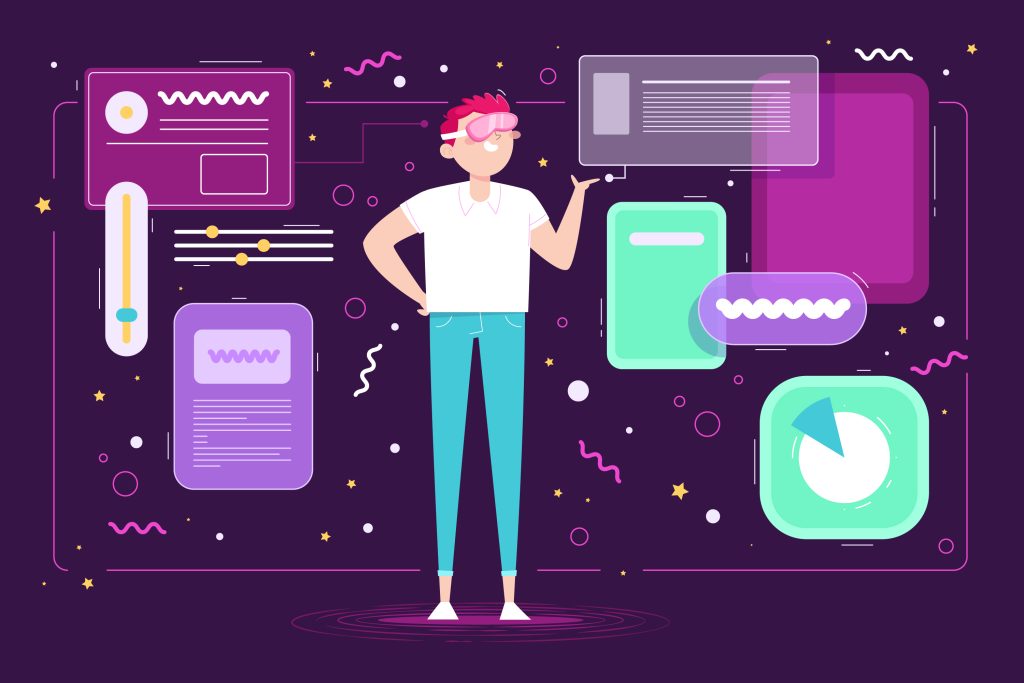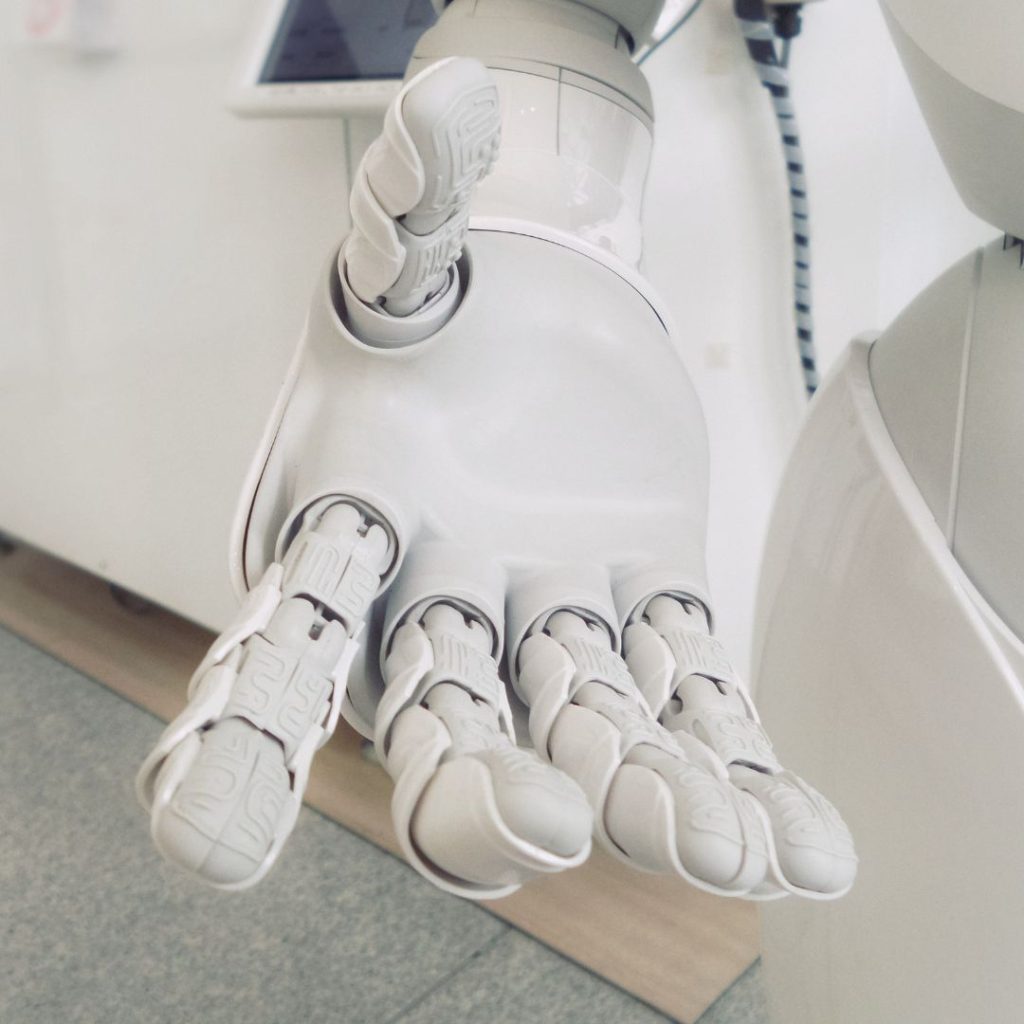The dawn of the digital era has brought forth an avalanche of advancements that are reshaping industries. From the “Internet of Things” (IoT) to the mystical realm of Alternate Reality, businesses are at the crossroads of innovation. Today, we delve deep into how these B2B emerging technologies are influencing product engineering, creating a more efficient and connected business realm.
Internet of Things (IoT) in B2B: Beyond Consumer Interactions
IoT, commonly visualized as home devices chatting with each other, has expanded its horizons. It’s not just about a smart fridge telling you to buy milk anymore. In the B2B sector, the power of IoT is being harnessed to revolutionize operations. For instance, biochips in farm animals offer real-time health data, aiding in preventive healthcare for livestock. Medical devices connected via IoT provide valuable data, facilitating proactive treatments and deeper insights into product usage. Imagine a world where manufacturing equipment self-reports faults, ensuring production lines never halt. That’s the power of IoT in the B2B space, seamlessly integrating unconventional objects like switches, printers, and TVs, and turning them into intelligent systems.
IoT is fundamentally a network of interconnected devices that can collect, exchange, and interpret data. This data-driven approach transcends traditional models. In the realm of B2B, IoT assists industries in diverse ways:
- Agriculture: Biochips in livestock and sensors in crops provide data about health, growth, and environmental interactions. Such insights enable timely interventions, improved yield, and resource optimization.
- Manufacturing: Equipment integrated with sensors can predict maintenance needs, reducing downtimes and enhancing production efficiency.
- Healthcare: Connected medical devices can monitor patient statistics in real-time, providing healthcare professionals with critical data to optimize treatment regimens.
Thus, by embedding intelligence into physical entities, IoT redefines the boundaries of operational efficiency and predictive insights in B2B operations.
Blockchain: The Trust Revolution in B2B
Cryptocurrencies might have introduced us to the concept, but the real marvel lies in the underlying technology: blockchain. This revolutionary platform eliminates the need for a central authority, ensuring secure and seamless transactions. In the B2B realm, blockchain is offering groundbreaking solutions. Think of B2B contracts stored on encrypted ledgers, ensuring tamper-proof agreements. Or, medical records made available across hospitals, yet protected from unauthorized access. B2B emerging technologies like blockchain promise trust, and in business, trust translates to reliability and growth.
In a conventional transaction, a centralized authority (like a bank) verifies the genuineness of the transaction. Blockchain eliminates this need, instead offering a peer-verified, transparent, and immutable record. In the B2B landscape, blockchain offers:
- Secure Contracts: B2B contracts can be encrypted and stored, ensuring their sanctity and reducing risks of tampering.
- Supply Chain Transparency: From production to delivery, every step can be recorded and verified, enhancing trust among stakeholders.
- Identity Verification: Critical in digital transactions, blockchain offers a tamper-proof system for authenticating identities, essential for industries dealing with sensitive data.
While the finance sector was the initial adopter, industries worldwide are recognizing blockchain’s potential in establishing trust, transparency, and security.
The Enthralling World of Alternate Reality
Far removed from the debates on alternative facts, the world of alternate reality is opening doors to unimaginable experiences. Augmented reality (AR), which overlays digital data on the real world, is making training sessions more engaging. Virtual reality (VR) is transporting stakeholders to virtual prototypes of engineering marvels, enabling informed decisions. And then there’s mixed reality, the perfect blend of AR and VR. For B2B enterprises, the potential is limitless. Be it architectural visualizations or interactive product demos, alternate reality is reinventing business presentations and sales pitches.
Alternate reality, encompassing augmented reality (AR), virtual reality (VR), and mixed reality (MR), has seamlessly transitioned from gaming consoles to boardroom projectors.
- Augmented Reality (AR) overlays digital information on the real world. In B2B, this can manifest as AR-guided repair sessions for machinery, where technicians see real-time instructions as they work on equipment.
- Virtual Reality (VR) immerses the user in a completely digital environment. For B2B enterprises, VR can simulate product environments or create interactive 3D models for stakeholders.
- Mixed Reality (MR) is the convergence of AR and VR. This could enable engineers, for instance, to interact with a machine’s digital twin, observing potential wear and tear areas and devising solutions.
These technologies, by offering interactive and immersive experiences, can revolutionize training, product demonstrations, and stakeholder meetings in the B2B realm.
AI: The Silent Game-Changer in B2B
Artificial intelligence (AI) might be the buzzword of the decade, but its implications in B2B are profound. Voice assistants are streamlining operations, while machine learning is providing businesses with predictive analytics, enhancing decision-making processes. Chatbots, a subset of AI, are now the frontline soldiers in customer service, ensuring queries are addressed 24/7. And with Machine Learning as a Service (MLaaS), businesses get access to predictive analytics, face recognition, and more. B2B emerging technologies like AI are not just enhancing efficiency but reshaping business strategies.
Artificial Intelligence, once the stuff of sci-fi dreams, is now a tangible force driving business strategies. In B2B, AI’s manifestations are diverse and impactful:
- Customer Service with Chatbots: These AI-driven interfaces can handle customer queries round the clock, ensuring uninterrupted service.
- Predictive Analytics: Machine learning models, a subset of AI, can analyze vast datasets to derive patterns. This is invaluable for sectors like retail, where inventory management can be optimized based on predictive demand.
- Automation: From automating mundane data entry tasks to complex manufacturing processes, AI paves the way for enhanced efficiency and reduced human errors.
Embracing AI in B2B not only augments efficiency but also facilitates data-driven, intelligent decision-making, giving businesses a competitive edge.
Conclusion: The Future of B2B Lies in Embracing Emerging Technologies
B2B emerging technologies are not just trends; they are redefining how businesses operate and deliver. As we step into the future, it’s evident that technologies like IoT, blockchain, alternate reality, and AI will be pivotal. For B2B organizations, leveraging these technologies is not just about staying updated; it’s about envisioning a future of limitless possibilities and growth. As 2023 unfolds, it’s clear that the future of B2B product engineering lies in harnessing the power of these emerging technologies.





